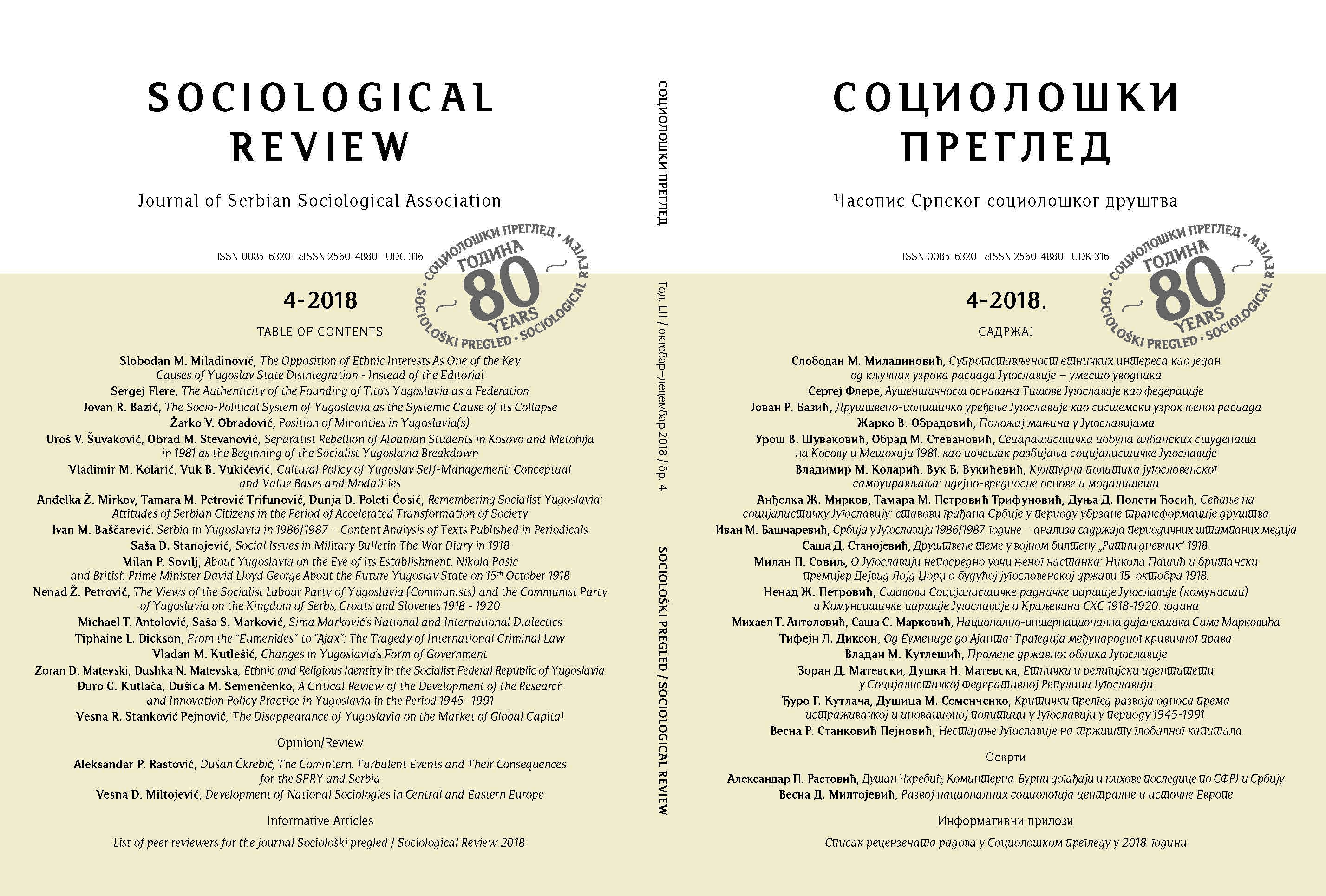Ethnic and Religious Identity in the Socialist Federal Republic of Yugoslavia
Ethnic and Religious Identity in the Socialist Federal Republic of Yugoslavia
Author(s): Zoran Matevski, Duška N. MatevskaSubject(s): Social Sciences, Sociology
Published by: Српско социолошко друштво
Keywords: ethnic identity;religious identity;state identity;
Summary/Abstract: Socialism as a political system, based on the supreme authority of the party, and relying on collectivism, tried to wipe away every difference between the social groups in the SFRY. Marxist ideology had a generally negative attitude towards religion, which led to the weakening of the religious identity in the population of Yugoslavia. On the other hand, the creation of the Yugoslav nation obstructed the development of the ethnic identity to a large extent. Consequently, the state identity was maximally intensified in the citizens of the SFRY. An above-national society with no state religion was formed. With this, the principles of ethnic and religious tolerance were practically implemented, relying on the brotherhood and unity of the peoples and nationalities, as its highest ideals.
Journal: Социолошки преглед
- Issue Year: 52/2018
- Issue No: 4
- Page Range: 1437-1455
- Page Count: 18
- Language: English, Serbian

